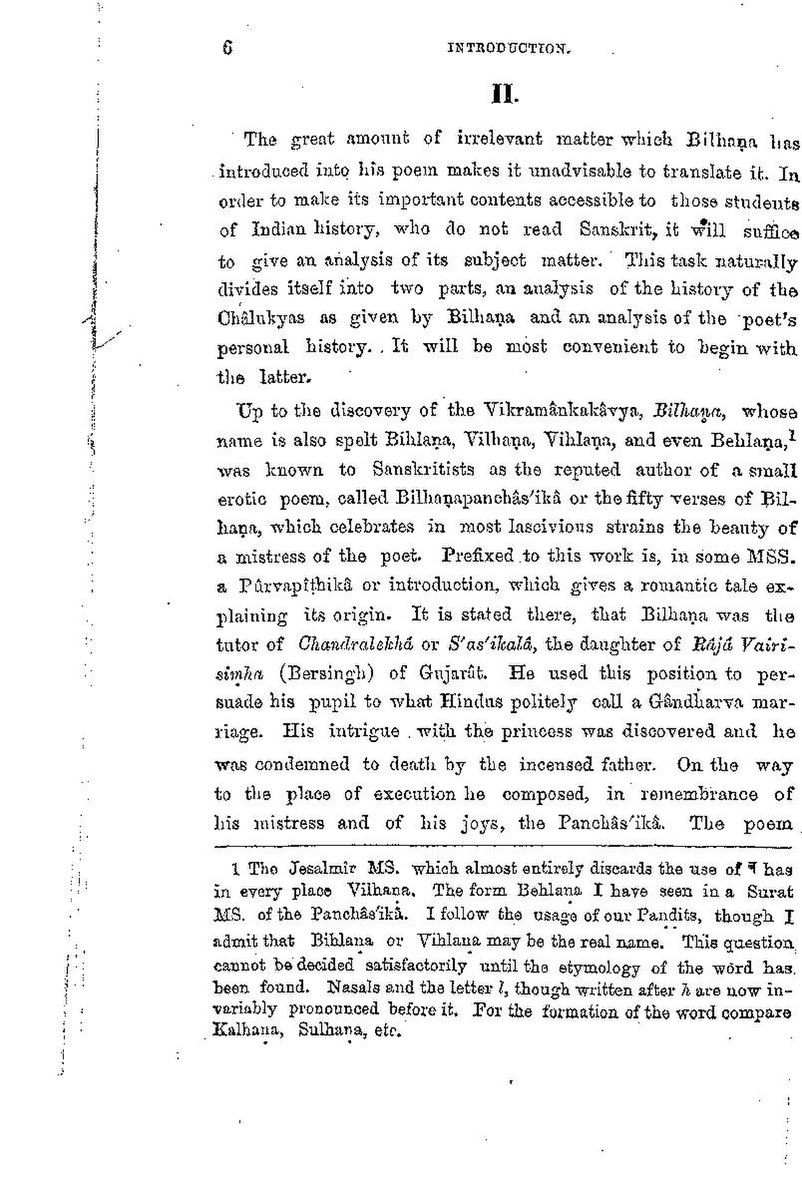6
INTRODUCTION.
II.
The great amount of irrelevant matter which Bilhana has
introduced into his poem makes it unadvisable to translate it. In
order to make its important contents accessible to those students
of Indian history, who do not read Sanskrit, it will suffice
to give an analysis of its subject matter. This task naturally
divides itself into two parts, an analysis of the history of the
Chalukyas as given by Bilhana and an analysis of the poet's
personal history. It will be most convenient to begin with
the latter.
Up to the discovery of the Vikramânkakâvya, Bilhana, whose
name is also spelt Billana, Vilhana, Vihlaņa, and even Behlana,
was known to Sanskritists as the reputed author of a small
erotic poem, called Bilhapapanchâs'ikâ or the fifty verses of Bil-
hapa, which celebrates in most lascivious strains the beauty of
a mistress of the poet. Prefixed to this work is, in some MSS.
a Parvapithikâ or introduction, which gives a romantic tale ex-
plaining its origin. It is stated there, that Bilhana was the
tutor of Chandralekhá or S'as'ikalâ, the daughter of Rájú Vairi-
simha (Bersingh) of Gujarat. He used this position to per-
suade his pupil to what Hindus politely call a Gândharva mar-
riage. His intrigue. with the princess was discovered and he
was condemned to death by the incensed father.
On the way
to the place of execution he composed, in remembrance of
his mistress and of his joys, the Panchâs'ikâ.
The poem
1 The Jesalmir MS. which almost entirely discards the use of has
in every place Vilhana. The form Behlana I have seen in a Surat
MS. of the Panchâs'ika. I follow the usage of our Pandits, though I
admit that Biblana or Vihlana may be the real name. This question,
cannot be decided satisfactorily until the etymology of the word has.
been found. Nasals and the letter 1, though written after h are now in-
variably pronounced before it. For the formation of the word compare
Kalhana, Sulhana, etc.
पृष्ठम्:विक्रमाङ्कदेवचरितम् - बिल्हण.pdf/१०
एतत् पृष्ठम् अपरिष्कृतम् अस्ति

